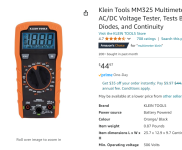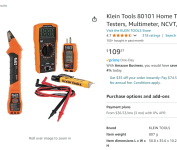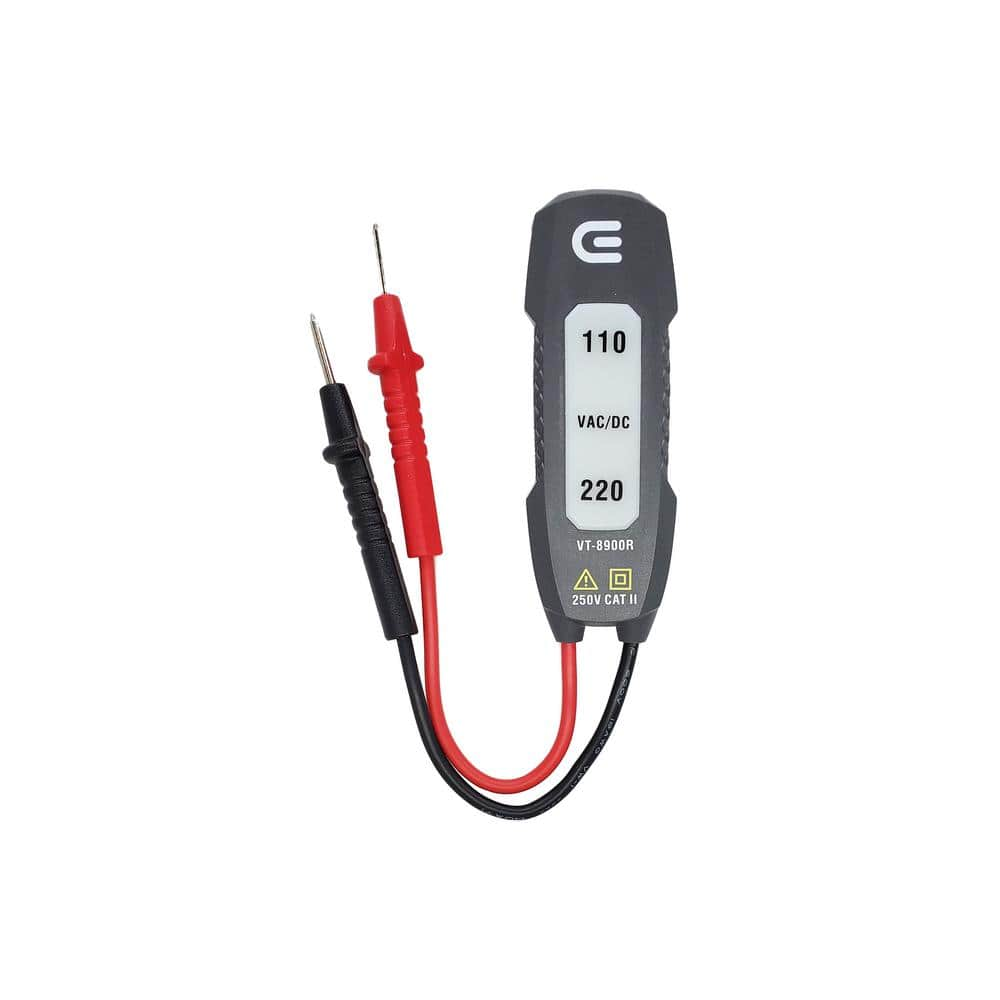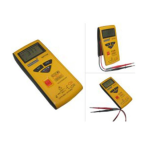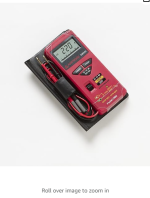Can anyone recommend a decent inexpensive volt meter. Mainly used for testing 110 & 220 volt lines.
I bought a cheap one from Amazon it takes watch style batteries, they don't last more than a week, every time I need it, it's dead.
So no watch batteries !!!
I'm sure I can find one on Amazon, but figured I'd ask here first. Thanks!
I bought a cheap one from Amazon it takes watch style batteries, they don't last more than a week, every time I need it, it's dead.
So no watch batteries !!!
I'm sure I can find one on Amazon, but figured I'd ask here first. Thanks!










